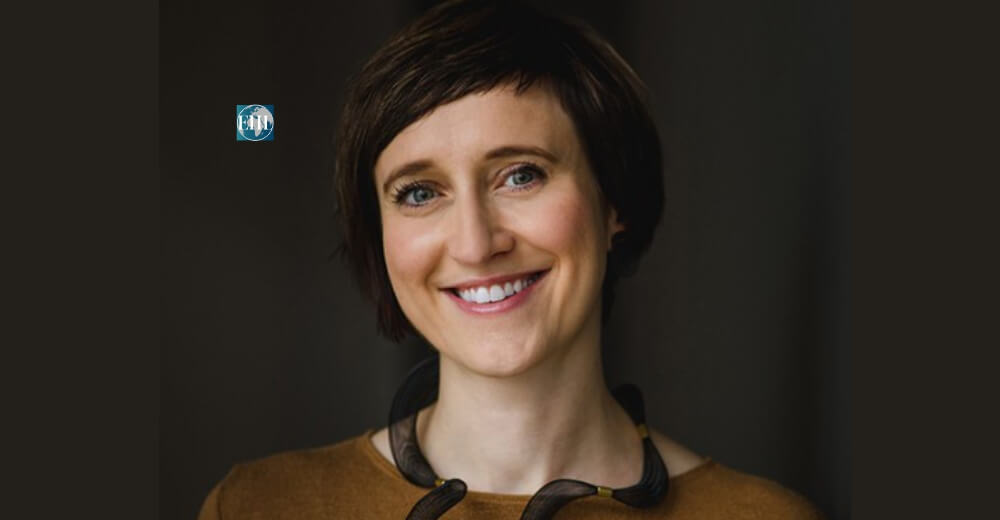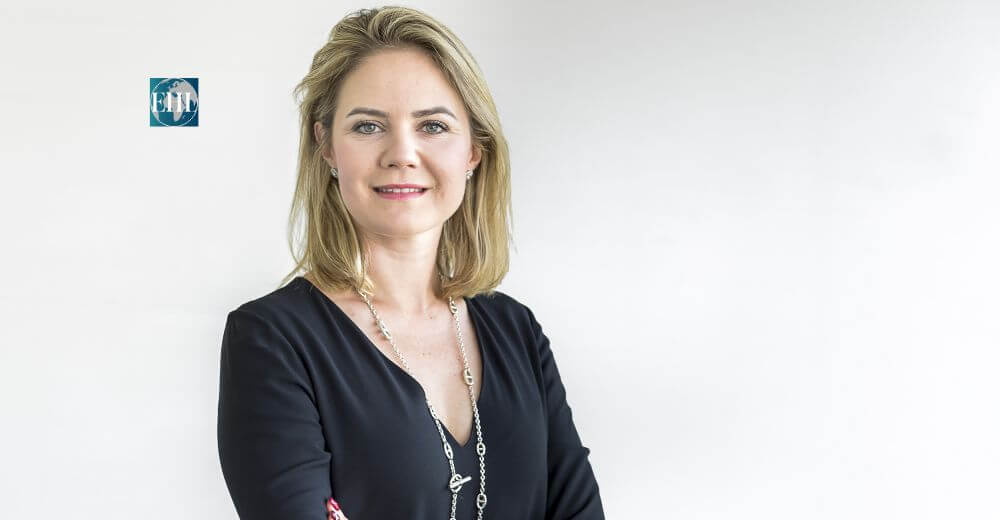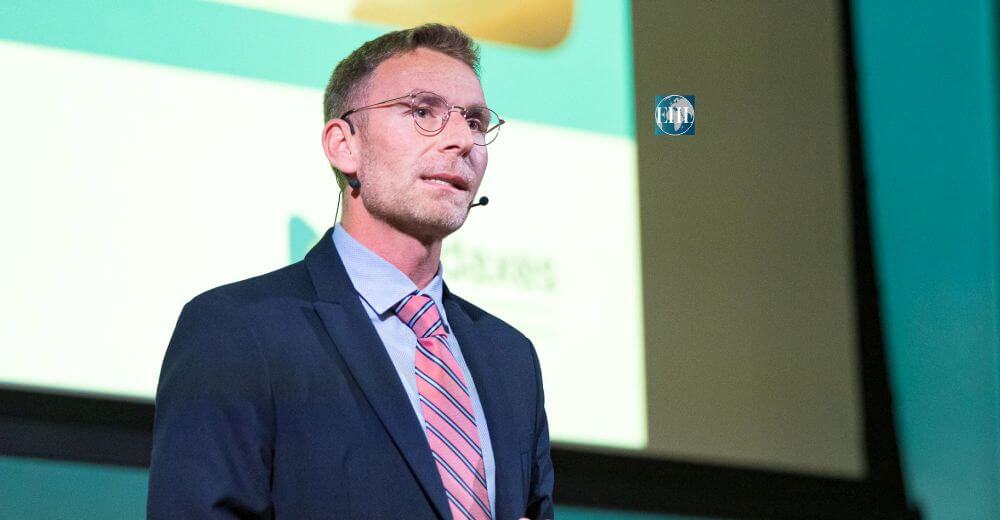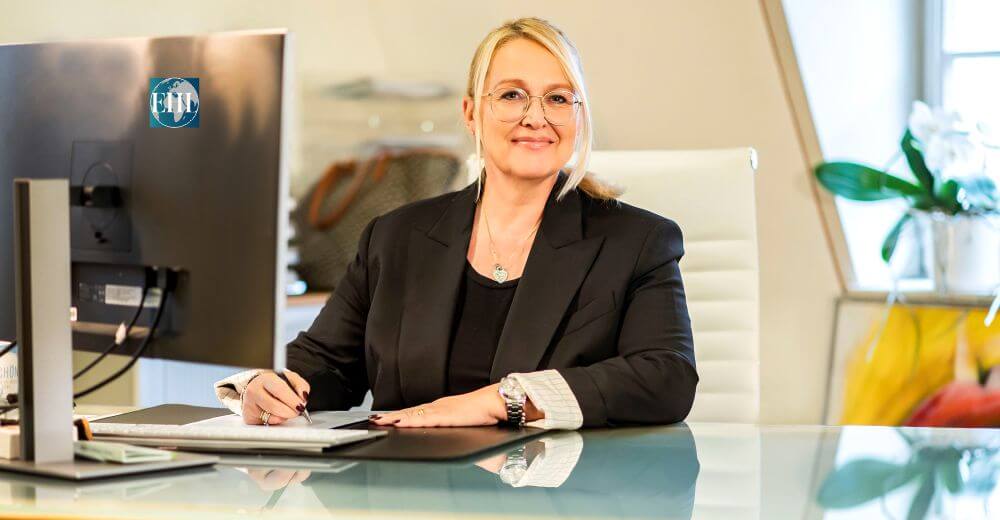Magdalena Paluch is the Co-founder and CEO of LabTwin, a pioneering voice-driven digital lab assistant transforming scientific experimentation. With over 17 years of experience as a user experience designer and entrepreneur, Magdalena spearheads LabTwin’s mission to accelerate scientific discovery and innovation in life science laboratories worldwide.
LabTwin is the world’s first AI- and voice-powered Digital Lab Assistant that enables scientists to seamlessly capture and access their experimental data through natural voice interactions, eliminating disruptive manual documentation. Integrated with lab informatics systems via an open API, LabTwin’s mobile solution empowers researchers to maintain an uninterrupted workflow, ultimately enhancing productivity and accelerating breakthroughs.
While LabTwin’s immediate impact is enhancing the efficiency of scientific work, its broader vision is to expedite the delivery of new treatments and therapies to patients globally and foster new science-born innovations that make the world a better place.
Let’s dive into the interview details!
Can you share your journey and the pivotal moments that shaped your leadership approach in driving innovation within the life sciences industry?
A diverse set of experiences across multiple industries has shaped my journey as a leader driving innovation. As a design-driven entrepreneur with over 17 years of hands-on experience, I have had the privilege of building and leading cross-disciplinary teams agilely, primarily within the healthcare and mobility sectors.
During my tenure as Director at Boston Consulting Group Digital Ventures, I led the building of over ten corporate-backed startups from scratch in Europe and the United States. This opportunity allowed me to hone my skills in fostering innovation within established organizations and navigating the complexities of corporate environments while nurturing an entrepreneurial mindset.
Before that, my role as Senior Innovation and Advanced Product Strategist at Toyota exposed me to the cutting-edge world of emerging technologies in mobility and robotics. I was responsible for identifying and implementing innovations such as autonomous vehicle design, further solidifying my appreciation for the transformative power of technology.
Today, at LabTwin, my leadership approach is centered on the convergence of design, science, and business. I lead a multidisciplinary team of experts, each with unique domain expertise. Our collective mission is to streamline data-driven experimentation in life science labs by leveraging the power of AI and Large Language Models. This holistic approach has enriched my perspective and reinforced my belief in the necessity of cross-functional collaboration to drive meaningful innovation.
What are the key innovation strategies and initiatives you have implemented to foster a culture of creativity and problem-solving within your organization?
As a startup pioneering new technology, fostering a culture of creativity and problem-solving is essential at LabTwin. One of our key strategies was and is to assemble a team of passionate individuals who are driven to go the extra mile in cracking complex challenges. We have also curated a team of diverse backgrounds comprising former lab scientists, lab informatics experts, change management specialists, data scientists skilled in language models, and software developers. This multidisciplinary composition enables us to approach problems from various angles, unlocking innovative solutions.
Collaboration is at the heart of our innovation initiatives. We leverage the Objectives and Key Results (OKR) framework to foster cross-functional synergy, encouraging everyone to contribute to the global OKRs with their unique perspectives and expertise. By aligning our teams around shared objectives, we create an environment that promotes creative problem-solving and enables the free flow of ideas.
Moreover, we believe in empowering our team members by establishing a culture of ownership at every level. This approach not only unleashes individual creativity but also accelerates decision-making and execution. We trust our team to take calculated risks, experiment with new ideas, and learn from both successes and failures – a mindset essential for driving innovation.
Could you highlight a significant obstacle you faced in your organization and how you overcame it through effective leadership?
One significant obstacle I faced was becoming pregnant while serving as CEO at LabTwin, requiring me to take a short maternity leave during a challenging period for the company. Handing over responsibilities tested our values of empowerment, trust, transparency, and distributed leadership.
Our team, led by my co-founder and COO Steffen Gloth and CTO Jonas Kulessa, seamlessly took over my duties, demonstrating our commitment to ownership at every level. This experience validated our belief that open communication and trust enable an organization to thrive even in the absence of key leaders.
Returning from leave allowed me to reassess my role, focusing on areas where I could have the most impact while continuing to delegate effectively. This period reinforced the strength of distributed leadership and the resilience of our team.
What is the biggest challenge for LabTwin in this Life Science Market?
One of our biggest challenges in the life science market is our pioneering role in developing a first-of-its-kind product: voice-powered data capture for labs. This entails extensive UX research and solving unprecedented challenges. Additionally, we need to educate scientific organizations about our technology’s value, security, and usability to gain their trust.
Our target market includes large pharmaceutical companies, chemical giants, and R&D labs, which often have extended sales cycles and complex decision-making processes. Despite navigating these uncharted waters, our team’s passion, expertise, and commitment to innovation drive us forward. By continuously collaborating with our customers and addressing their unique needs, we aim to establish a new paradigm in lab informatics.
What are your approaches to attracting, developing, and empowering the next generation of life science innovators?
At LabTwin, we foster a culture of purpose and ownership. Our employees often cite the opportunity to work on a pioneering product with modern technologies that can genuinely improve the world as their main motivation. This sense of purpose energizes our team.
We translate this purpose into action by encouraging initiative and full project ownership. Empowering our team members to explore their potential and chart their professional growth creates a workplace where people are inspired and never bored.
However, empowerment alone is not enough. We invest in our team’s skills and knowledge through continuous learning opportunities, mentorship programs, and exposure to diverse perspectives within the lab digitalization ecosystem.
As innovation pushes boundaries, ethical considerations become increasingly important. How do you ensure that your organization’s innovative pursuits align with ethical principles and societal well-being?
As innovators, ethical considerations are crucial. We engage diverse experts—product, business, safety, and security—and encourage critical evaluation of our decisions, especially with new technologies.
Our customers, including large pharmaceutical organizations, handle highly sensitive information, necessitating unwavering commitment to data safety, security, and privacy. We have robust processes and recurrent audits to maintain certifications like ISO 27001 and 27017, ensuring our IT systems and data processes are secure.
Located in Germany, a country with a strong ethical culture, we aim to be a role model. Our blend of cutting-edge technology and stringent security measures sets us apart, emphasizing data safety from the ground up.
When bringing AI-driven products to market, trustworthiness is paramount. We use human-in-the-loop automation to ensure our systems make correct decisions and learn appropriately. Our innovations are guided by a deep sense of societal responsibility, ethical awareness, robust security measures, and a commitment to humanity’s greater good.
What advice would you offer to aspiring leaders in the life science innovation sector who aim to make a lasting impact and drive transformative change?
To aspiring leaders in life science innovation, my advice is this: Embrace the relentless pace of change as an opportunity for continuous growth and reinvention. We are in an era where information, technology, and societal norms evolve rapidly. It’s about more than adopting digital tools—it’s about thriving in a paradigm shift where former best practices quickly become the minimum standard.
To drive true transformation, cultivate an agile mindset, make swift decisions, ensure security amidst uncertainty, and learn rapidly from successes and failures. Crucially, develop the ability to “unlearn” as quickly as you learn, shedding outdated thinking to keep pace with change. This “speed-unlearning” is vital for innovation.
Transformative change isn’t just about personal growth; it’s about empowering and uplifting those around us. Focus on the human experience, leverage empathy, and coach those who need more time to adapt. This creates a ripple effect throughout organizations and industries.
In life sciences, where our work can save lives and improve human conditions, this approach is a moral imperative. By constantly reinventing ourselves and inspiring others, we unlock the full potential of innovation.









